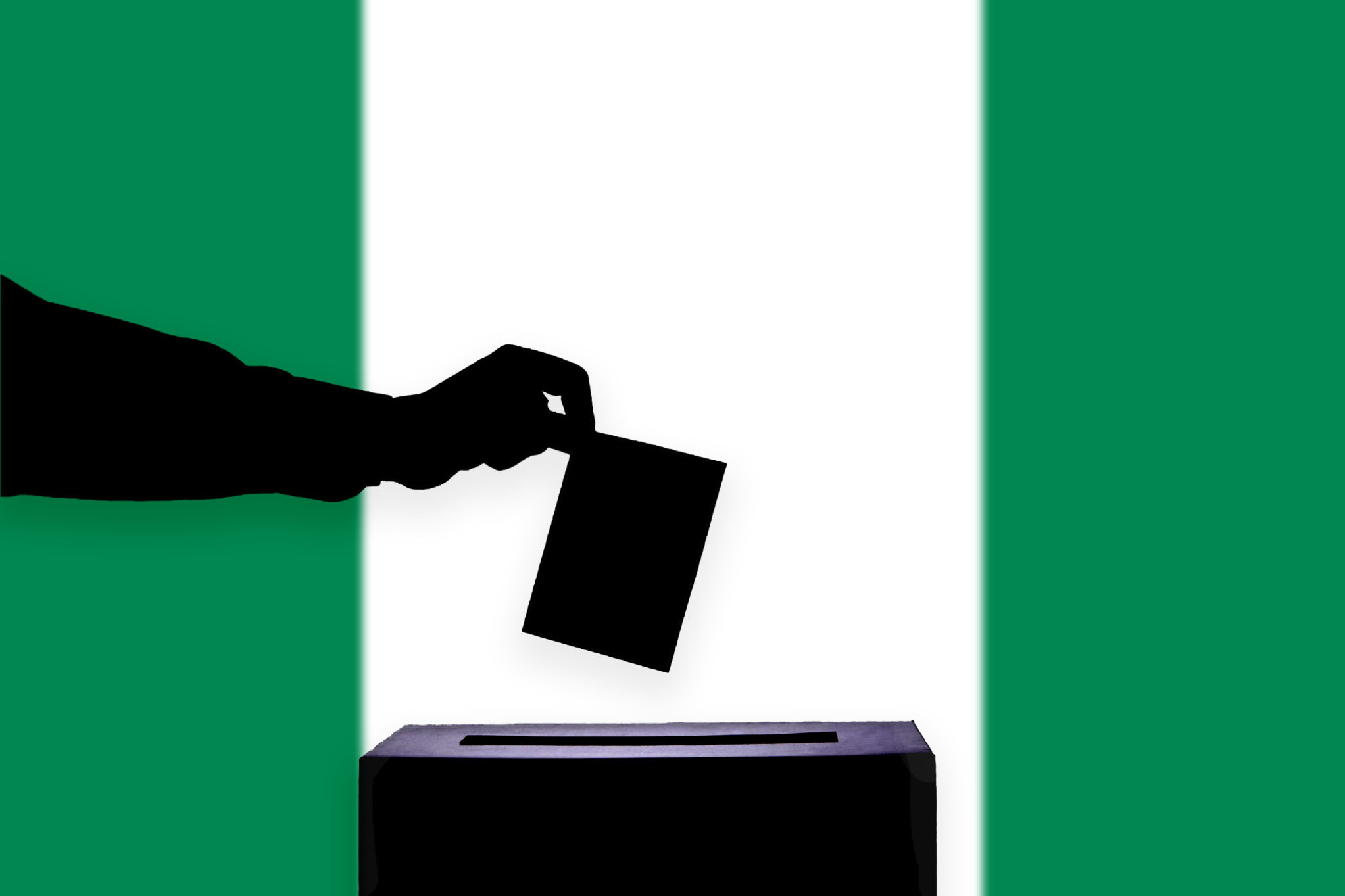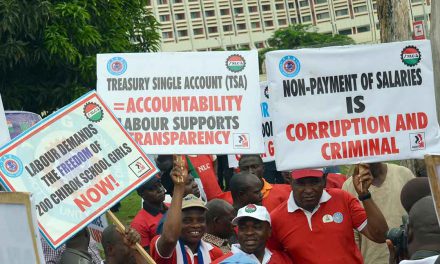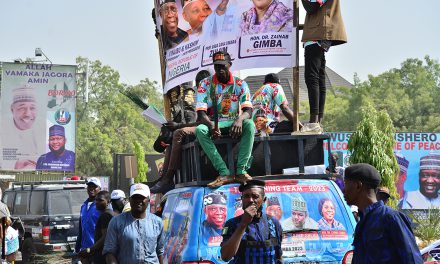Recommendations
- Government should guarantee the right to vote by providing for it under Chapter IV of the constitution while also making it a civic duty for citizen to vote.
- Nigeria’s political and social stakeholders must work together more concertedly to enable the judiciary’s independence, better to actualise enhanced voting right in a revised constitution.
- Nigeria’s in-coming parliament must expedite legislation to enhance the use of technology in the electoral process, which should facilitate the process for voter registration, the collation of a comprehensive voters register, and make voting more transparent and less onerous.
- Government must explore creative avenues such as partnering with telecommunication companies in order to leverage the information of registered customers, which can be supplemented with the data of citizens without mobile phone access.
Introduction
The conduct of regular elections and the guarantee of the fundamental rights of citizens lie at the fulcrum of democracy. One of the major problems with Nigeria’s democracy is the absence of a cast-iron protection of the right to vote. The right to vote, though an inextricable part of democracy, is not enshrined in chapter IV of the Nigerian 1999 constitution, alongside the other fundamental rights. In practical terms, this makes the legal enforcement of citizens’ voting right cumbersome.
From the beginning of Nigeria’s 4th republic in 1999, different election cycles have witnessed serious obstacles in the way of the citizens’ right to choose at the polls.
A functioning democratic system of governance must provide an avenue for the larger part of society to take part in choosing political leaders. Arguably, one of the most important role of government is to establish a transparent, well-functioning and participatory electoral system that ensures the universal involvement of citizens of voting age in the electoral process.
Constitutional guarantee
The right to vote has its roots embedded in the social contract theory, and it can be argued that this is probably the most important right of all. This is because government is legitimately formed only after citizens have gone to the ballot to choose. The social contract theory prescribes that once members of a society agree to give up some of their rights and freedom to an authority duly chosen by citizens, such chosen authority must in turn protect the rights and freedom of citizens from encroachment.
The right to vote is the foundation upon which this participatory right rests. To be truly part of a given society, members must have an inalienable right to participate in the good governance of that society. Chapter IV of the Nigerian constitution guarantees a list of fundamental rights which are enforceable in the courts. Where a provision of chapter IV is contravened or a fundamental right is trampled upon, section 46 of that chapter allows for citizens to approach the high court for enforcement proceedings.
However, the omission of the right to vote under chapter IV renders this right unenforceable in a strict legal sense. Such an important right that allows citizens to participate in the periodic change of their leaders should be in chapter IV alongside the fundamental rights of all Nigerian citizens.
Although some provisions in law such as section 7(2) of the constitution and section 12 of the Electoral Act may be deemed to have touched on voting, these sections in no way provide a fundamental protection or guarantee of the voting right.
The absence of a guarantee for the right to vote allows for the abuse of this right by the state. Fundamental rights under chapter IV of the constitution enjoy guarantees that protect them from interference by the state and other citizens. Having no form of protection in the constitution for the right to vote therefore leaves room for the government to remain lackadaisical in its duty at actualizing the citizens’ right to vote.
These governmental duties in respect of effective actualisation of citizens’ votes include the efficient registration of voters; providing adequate logistics for voting; instilling the sense of duty to vote in citizens; and such other measures that can make voting possible, meaningful and reflective of the popular will.
Safeguarding the vote
One of the attributes of rights under chapter IV of the Nigerian constitution is that they are open to legal redress, allowing individuals whose fundamental rights have been encroached upon to seek their legal enforcement. With no provisions for the right to vote under the chapter IV of the constitution, there exist no form of legal redress for citizens. Successive administrations since Nigeria’s return to democratic rule in 1999 have done little to address this.
Also, there has been no concrete plan to solve the recurring problems encountered during the registration of eligible voters and collection of voters’ cards. The time usually allocated for the registration exercise is wholly inadequate and the process is cumbersome.
Moreover, electoral malpractices and willful disregard for the provisions of the electoral act have become notable features of the political climate in Nigeria. These are among the most serious obstacles to the efficient conduct of elections.
Election season in Nigeria are often marred by acts of disorder and lawlessness, which act as barriers to citizens’ participation. Most citizens generally view election days as public holidays and stay in the safety of their homes away from voting centres. With the myriad electoral malpractices including voter intimidation, ballot box snatching and vote buying, the feeling among many citizens is that their vote is inconsequential. This widens the gap between the majority of citizens and the governance process.
As a result, turnout during elections is on the decrease. About 43% of registered voters participated in the 2015 general election compared to 57% in the 2007 elections. This constitutional reality of voting as less than a fundamental right contributes to government’s ineptitude, manifested for example in the inadequate logistical provisions for voter registration. In Lagos state alone, the electoral commission reports that about 1.38million permanent voters’ cards are yet to be collected by prospective voters. As a consequence, millions of eligible voters continue to be disenfranchised.
Without any clear avenue for redress, citizens have no way to hold the government accountable for failing to perform its duty with regards to enabling citizens to vote. Assimilating the right to vote into chapter IV of the constitution would open up the avenue to seek legal redress as necessary and also encourage more citizens to see voting as a civic duty that is both incumbent and relatively easy to perform.
The challenge of youth participation
With the youth making up more than half of the Nigeria’s 182 million population, they play a vital role in the electoral process. Before the 2015 election, the youths comprised about 63% of the eligible voting population. However, the influence of the youth in governance before, during and after elections remains marginal. This exclusion of youth from governance, coupled with the high unemployment rate in the country, has resulted in high levels of frustration which may inevitably turn young people to civil disobedience and violence.
With youth unemployment standing at 33.10% as at 2017, most Nigerian youths are caught up in the daily struggle for survival and view political participation as secondary. The system operated by most political parties in Nigeria fails to provide much needed opportunity for youth participation in politics. Although the passing of the “Not too Young to Run” act reduced the age for contesting for various political offices, most political parties are yet to willingly concede their platforms to young people.
Moreover, one of the ways that political parties continue to stifle youth participation is through the high cost of nomination forms for political office. Issues such as this require urgent redress to enhance popular participation in the governance process.
Conclusion
As the 2019 general elections approaches, the general tendency for government is to focus on winning at the polls. However, one duty that remains sacrosanct is for the government to ensure successful conduct of the polls in a free and fair manner. In the bid to achieve this, the right of every citizen of voting age to vote should be protected and guaranteed by the state, preferably in the chapter IV of the constitution alongside the other fundamental rights. Effective participation by citizens during elections, and their involvement in decision-making even beyond the elections, remain fundamental to foster good governance.
The right to vote is recognized under Article 21 of the Universal Declaration of Human Right (UDHR). Article 21(3) which states that: “the will of the people shall be the basis of the authority of government. This will be expressed in periodic and genuine elections which shall be by universal and equal suffrage and shall be held by secret vote or by equivalent free voting procedures”.
Taking steps to enshrine the right to vote in the chapter IV of Nigeria’s constitution will open up avenues for citizens to mount effective pressure for the actualization of voting right and the establishment of a more transparent and accountable system of government.
Eniayo Ibirogba is a law graduate from the University of Buckingham, United Kingdom. Before studying law he got a degree in international law and diplomacy from Babcock university, Ogun state, Nigeria. His core interests are policy advisory, community development and human rights.














